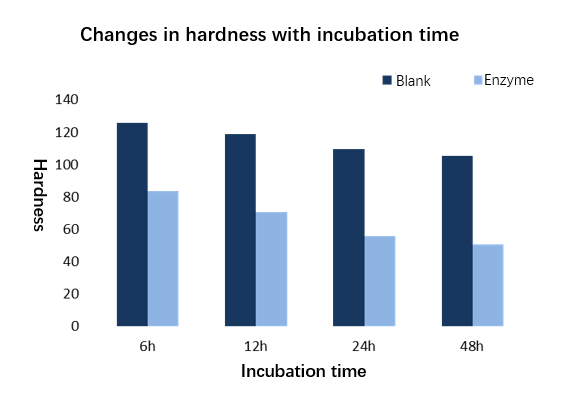Sunson’s solution to hardness problem of high-lignocellulosic foods
Sunson’s latest generation cellulase solution—Fiber softening Cellulase SF-G—is expertly formulated to soften tough, lignocellulosic foods, with particular effectiveness in areca nut (betel nut) processing. Areca nuts are naturally fibrous and rigid, making them challenging to chew and difficult to fully enjoy. By applying Fiber softening Cellulase SF-G to these high-fiber materials, processors can significantly improve the texture, enhance mouthfeel, and reduce oral discomfort.
Sunson, a pioneer in lignocellulosic food softening solutions, proudly introduces its latest generation softening product—Fiber softening Cellulase SF-G. This innovative enzyme preparation is designed to maintain oral health and enhance texture. Let’s take a closer look at what Fiber softening Cellulase SF-G has to offer.
Sunson specializes in developing bio-based solutions for softening high-fiber fruit and lignocellulosic foods. Supported by a dedicated plant fiber softening research laboratory, Sunson employs cutting-edge analytical technologies—such as texture analyzers, ultra-high-performance liquid chromatography, and gas chromatography-mass spectrometry. Through comprehensive research and continuous exploration, Sunson has successively developed a series of star products tailored to soften these challenging food materials like areca nut (betel nut).
The product is produced using finely bred microbial strains through submerged fermentation and refined processing, ensuring food-grade purity. In addition to a rich cellulase complex, Fiber softening Cellulase SF-G contains an appropriate amount of synergistic hemicellulase. This enzyme system effectively modifies both the crystalline and amorphous regions of cellulose. By selectively breaking hemicellulose side chains and disrupting the hydrogen bonds between hemicellulose and cellulose, the enzyme loosens the tightly bound fiber structure, creating a more porous, tender texture. After enzymatic treatment, the fibers swell significantly, and secondary wall lignin fibers disperse and depolymerize. The result is a product that can be easily shredded into fine strands by hand as shown in the below picture.

Cellulose fiber in native state After enzymatic treatment

After enzymatic softening with Sunson Fiber softening Cellulase SF-G, high-fiber fruits exhibit depolymerized and softened secondary wall lignocellulosic fibers. The fibers become finer, longer, and more pliable, allowing marinades and broths to penetrate more effectively. The result is a tender, easily shreddable texture that does not irritate the oral cavity.

| E-mail: sunson@chinaenzymes.com |
| Tel:86-20-86586087 86-10-58246891 |
| Fax:86-20-86586895 86-10-58246862 |
